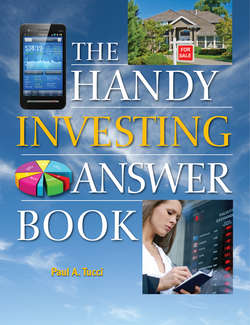The Handy Investing Answer Book

Реклама. ООО «ЛитРес», ИНН: 7719571260.
Оглавление
Paul A Tucci. The Handy Investing Answer Book
Отрывок из книги
About the Author
Paul A. Tucci is a writer/researcher and author of Traveling Everywhere (2001), The Handy Geography Answer Book (2008), The Handy Personal Finance Answer Book (2011), and numerous articles on the information industry. He has guest lectured in international management, marketing, and strategy at various universities, including New York University, Northwestern University, the University of Michigan, and Oakland University. An amateur investor for over 30 years, and a former global information and publishing manager, he is also a business owner and partner of an innovative IT services and software development firm, a consultant to and investor in small private equity funded businesses, and a member of the board of directors of the Rislov Foundation, a charitable foundation dedicated to providing funding for classical music education, instruction, and programming, and iwerk. He resides in Michigan.
.....
Are corrections good for some investors?
Some investors look at corrections as buying opportunities, as often overvalued stock prices are reset to a lower level, representing their true value, and giving investors an opportunity to buy at a lower price. These same investors will typically have ready access to liquid assets, such as cash, in order to take advantage of the perceived bargain during a correction.
.....